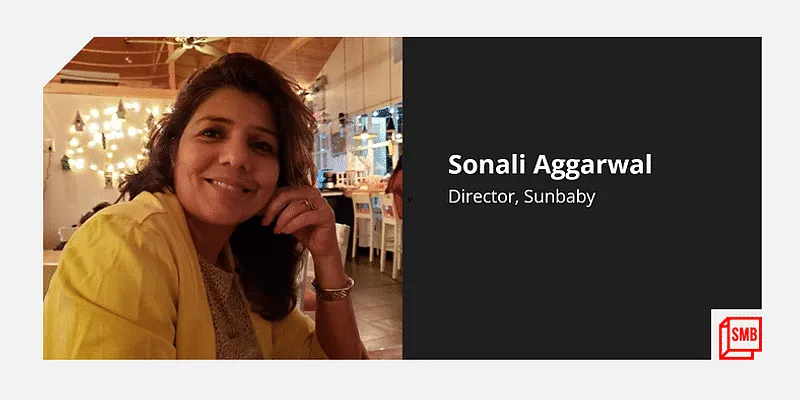From taking India's toy story global to giving an identity to artisans: top SMB stories
This week, SMBStory also assessed the impact of the Consumer Protection (Direct Selling) Rules, 2021, which are expected to bring about transparency in the industry according to experts.
Over 20 years ago, when Sonali Aggarwal was looking for toys for her child, she saw the market lacked quality pieces and decided to take the matter into her own hands.
In 2001, she started with her husband Sunil Aggarwal as a side business with an initial investment of $15,000-20,000. Initially, they would import toys and other children-specific items like milk bottles, walkers, and more, from China and Thailand and sell them in India. Two years later, in 2003, seeing an increase in demand, Sonali decided to run Sunbaby full-time.

"India lacked quality products. Except for basic baby walkers, not many baby toys were available," she tells SMBStory.
Today, Sunbaby is a well-known Indian toy brand that is also making its way into the international market, starting in the Middle East. The company, which was registered in 2006, offers over 2,000 SKUs (Stock Keeping Units) across 15 categories of baby care and children's play products including strollers, baby chairs, car seats, baby bedding, baby carriers, and more.
In an interaction with SMBStory, Sonali charts out the journey of Sunbaby in the last twenty years and going forward, how it plans to establish a global footprint as well.
Gaatha

The journey of - a handcrafted online store, which started to recognise the faceless artisans of the world, is an epitome of how things change for the better and guides us to a certain path.
Started as a blogging site to make people aware of the rich art and craft of the country, designing enthusiasts Sumiran Pandya, Himanshu Khatri, and Shivani Dhar began writing about different artforms and handlooms on their web portal Gaatha in 2009.
What started as a move to tell the world about the Indian art and craft heritage, today Gaatha has become one of the most sought after online stores for people to shop for Indian artisanal products. The brand makes available over 350 art forms across 30 categories to its customers and supports around 250 artisans.
In an interaction with SMBStory, Sumiran talks about the journey of Gaatha, the arts and crafts of India, and how they are doing their bit to support the artisanal community.
Other top stories of the week:
Direct selling is not a novel concept in India. Over the past few decades, companies such as Oriflame, Avon, and Amway, among others, have created a customer base in India through their products combined with their strategies in directly reaching users.
A direct selling company involves the trading of products in a non-retail format, eliminating middlemen, to reach the end consumer. Despite overlapping features in terms of technology and products, direct selling companies are different from new-age D2C (direct-to-consumer) players as they give opportunities to people to earn extra income.

Direct selling companies, industry players say, are focused on creating micro-entrepreneurs.
According to a World Federation of Direct Selling Associations (WFDSA) report, the number of direct sellers increased to 5.7 million in 2018-19 and is expected to reach 18 million by 2025 where women account for about 60 percent of the sellers.
When the whole world was under economic crisis amid the coronavirus pandemic outbreak – companies forcing mass layoffs, and inflation affecting lives of the common people, the direct selling industry witnessed a new dawn.
One report by IDSA Annual Survey 2020-21 states that the Indian direct selling industry was valued at Rs 18,000 crore in 2020-21, registering a 7.7 percent year-on-year growth, which is commendable given the roadblocks caused by the pandemic.
So, what does the future look like for the direct selling industry in India?
SMBStory spoke to Samir Modi, Founder and Managing Director of Modicare Ltd; Sujit Jain, Chairman and Managing Director of Netsurf Network; and Gautam Bali, Managing Director of Vestige Marketing to get an insider perspective of this industry and understand the road ahead for the direct sellers given the implementation of Consumer Protection (Direct Selling) Rules, 2021.
The new regulations, which among other things would hold direct selling companies accountable for the products sold, are expected to bring about transparency in the industry, according to the people SMBStory spoke to.
Edited by Megha Reddy









